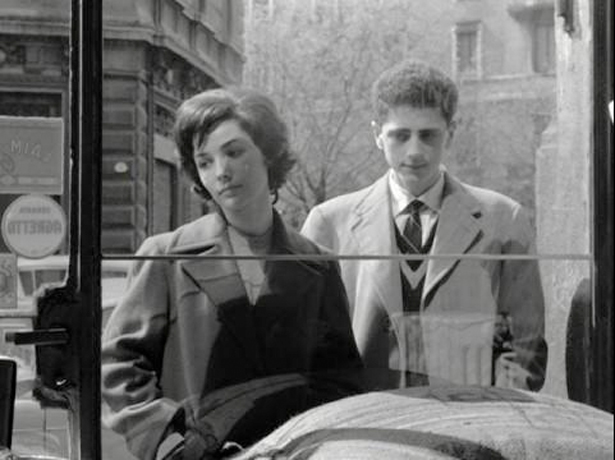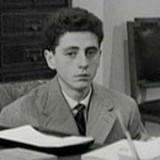Do you remember your first job interview and your mom protectively cautioning you, don’t mess up this could be a great opportunity, practically work for life? Or an important exam you took at school and the following stress afterwards when your friends commenting – that was easy (no it wasn’t!), prodding you the correct answer was 24, right?

In this film, Ermanno Olmi effectively captures the world of a young guy from the province who comes to the big city, Milan, in his quest to get a job in a large corporation. Olmi does a fantastic job painting these fragile feelings of inexperience, naivety, and anxiety against the rigid ideas of the importance of finding work, but not just any work – work for life (aberration in today’s job market), family responsibilities, and corporate dominance over the lives of employees inside and outside the office.
The first half of the film revolves largely around the intense, and at times comic interview process young Domenico has to go through; writing an essay, solving a math problem and coiling embarrassingly during a psychometric interview. Dialogs are short as Olmi skillfully leverages facial expressions as a powerful communication tool. There is a scene where Domenico (Sandro Panseri) and his test mate Antonietta (Loredana Detto), are standing in a coffee shop, finishing up their drinks and looking for cues what to do with their cups, identifying an old lady next to them, in the same stage, that decidedly leaves the cup on the table – grinning to each other (aha, that’s how you do it!) they put their cups on the table too and leave the shop. Not a word was spoken, but a simple human effort to make sense of a vague context.
Neorealist films are characterized by use of non-professional actors. They are shot almost exclusively on location, mostly in poor neighborhoods and in the countryside. Neorealism was first introduced in 1945 with Roma, Città Aperta (Rome, Open City) by Roberto Rossellini. In this film, Olmi religiously follows this model. For example, all the other job candidates that appeared in the film were non-professional actors that were attending a technical school at the time, and actively searching for a job. For Olmi it was cardinal that their facial expressions (his favorite communication tool) were authentically aligned with the film’s theme.
The other half of the film follows Domenico’s experience on the job and the intricate meanings of working for a big company in Milan in the 60’s. Extremely stretched, yes but still relevant; The big boss, the office politics, the company holiday party, the lunch break, and payday – themes we can all relate to. In this sense, some may say this film is a unique precursor to the successful TV show “The Office.”


3 comments